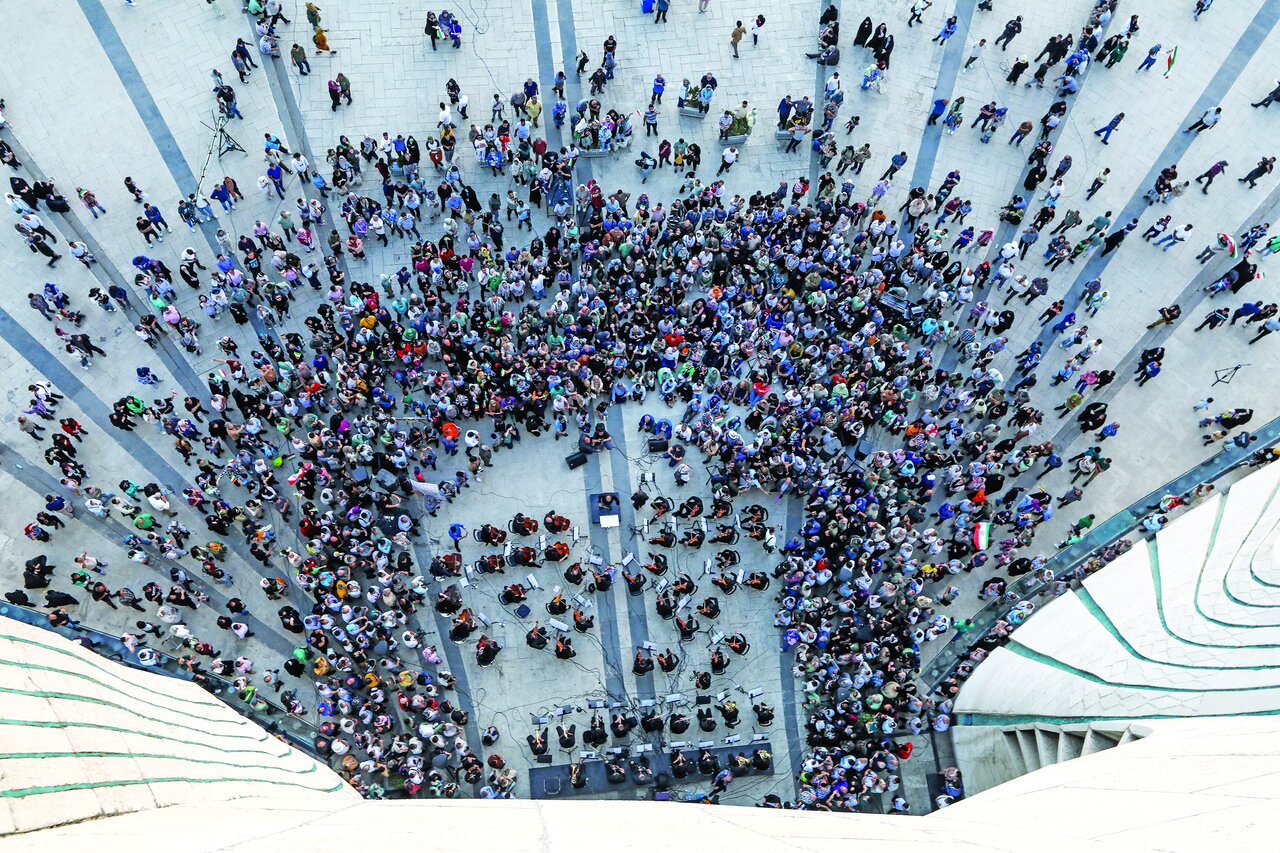One Nation, One Heart
How did Israel's aggression unite Iranians more than ever?

TEHRAN – Wednesday was a surreal day in Tehran, a day after fighting between Iran and Israel halted. More people came out to attend to their work compared to the previous days, and down in the south, in the Behesht-e-Zahra cemetery, it was the most crowded it had been in years.
Several funerals were being held there. There were young, old, male, and female bodies wrapped in the white fabrics Muslims use to bury the dead. The atmosphere was eerie. There were many people crying and weeping, but there were also some who looked firm despite the grief showing on their faces.
I spoke to one of the mourners, a woman who was burying her brother. She was wearing a black Iranian chador. Next to her were people who looked nothing like her in attire; they wore loose-fitting clothes and hijabs. "I lost my brother during an Israeli attack. He was a soldier completing his military service," the woman explained. Zahra, as she named herself, said she comes from a family that has sacrificed many of its members for the country. "Two of my uncles were martyred during the Iran-Iraq war. My dad was also a soldier during that war. We were used to hearing and talking about martyrs, but we never thought we would be speaking about my 23-year-old brother in the same manner."
The women standing next to Zahra were not related to her. They came by when they realized a martyr was being buried. Dozens of other strangers were also gathered around the freshly dug grave, offering condolences and saying prayers. I asked one of the two women that had caught my eye about the propaganda we have been hearing on Persian media outlets based in the West: that this war was a war of the Islamic Republic, and that less religious people should distance themselves from the Armed Forces. "We are here for our country. It doesn't matter what our religious or political backgrounds are. When it comes to Iran, we are all ready to fight for it and even give up our lives," she said, as she shielded her eyes from the sun with her hands.
Creating division and separation was indeed an important agenda of the enemy during the 12-day war it waged against Iran. Americans and Israelis even got the deposed Shah's son to come out and announce he was ready to take over. The jobless, delusional former Crown Prince is now referred to inside Iran as the "old child," an adjective a prominent Iranian scholar gave him after he backed Israel's war against his country.
During the period of the war, however, the bond between Iranians was only strengthened. After Trump said people should "evacuate Tehran," millions across the country took to social media to announce they were ready to host fellow Iranians in their own homes. In the streets, residents came out to offer drinks and food to the security forces looking for potential Mossad agents, and in grocery stores and gas stations, people were careful not to buy more than they needed, so they would not cause an artificial shortage of goods and fuel.
Military and political officials on Tuesday and Wednesday, all credited this unity and patriotism as the core of Iran's victory against Israel, which began a war against Iran thinking it could topple the government, destabilize the nation, and obliterate its military and infrastructure.
When I returned to my residence in eastern Tehran, one of my neighbors brought "Nazri" to me, a meal Iranians cook and distribute among others after something they have asked from God is granted. "I asked that we stay united and defeat the enemy," my neighbor said. She is a woman that is nearing her 70s. She told me the unity and synchronization she witnessed in the last days reminded her of the days of the Iran-Iraq war. "I think for as long as Iranians exist, defending the country would be paramount to them. No one can take this away from us."
Leave a Comment